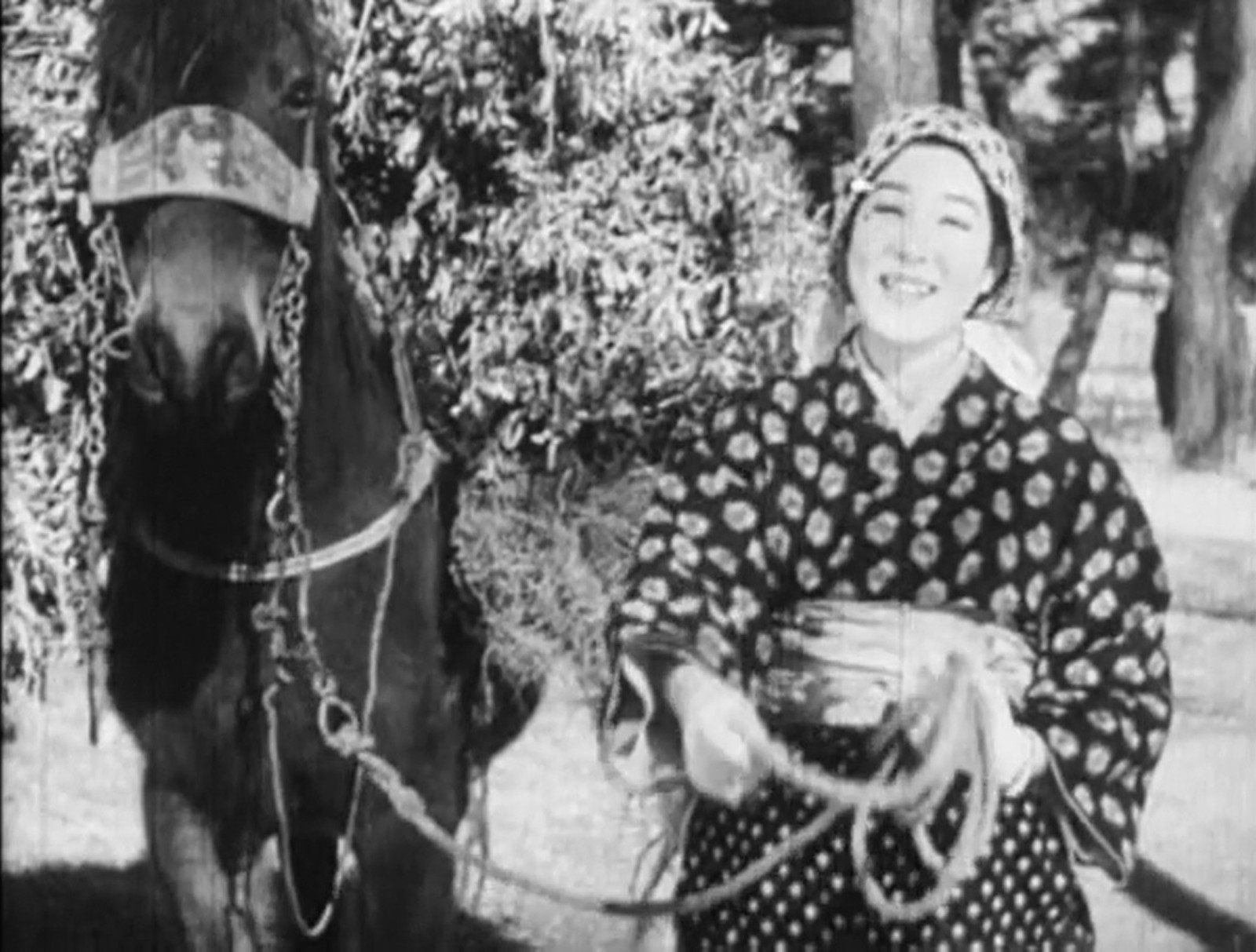
This is part seven of “Films of 1949” series (Part 1, 2, 3, 4, 5 and 6).
Though Imai’s “Green Mountain” captured the new spirit of the time, liberation from old era, the year 1949 was also at the entrance into another long turmoil; the Cold War. Joseph McCarthy gave his “Wheeling Speech” in February of 1950. Korean War also broke out in 1950. Yes, U.S. was also heading for the dark age. Inevitably, U.S. policy toward Japanese democracy quickly shifted to that of anti-communist.
Socialist movement and protests were blocked by SCAP. There were many bloody incidents involving assassinations and terrorism, all linked to underground operatives of U.S. secret agency. These political landscape was not unfamiliar to Japanese people; suppression of social movements and communists, along with bloody espionage, all happened between 1920 and 1945 in Japan. In addition, many powerful political figures in war criminal courts were acquitted or sentenced to ridiculously short terms (one of them were to become a Prime Minister). In such a political climate, one had to wonder the “democracy”, as it was called, was just another re-labeling of the sour milk way past its expiration date.
Beni Imada Kiezu (“Lip Rouge Has Not Faded Away, Yet”, 朱唇いまだ消えず、1949) is a movie that reflects such atmosphere. Though it may be a simple tale of adultery on its surface, its characters are tormented with moral ambiguity and are not able to decide what they want to do. This is a departure from faith in humanity evident in Imai’s “Green Mountain” or Kurosawa’s “Quiet Duel”. However, it is not a moral tale of prewar melodramas, either.
A married man, Mamiya, (Shin Saburi) keeps untidy extramarital relationship with Takako (Sanae Takasugi) whom he had known for years. He is indecisive and really vague on his intentions, but insist on continuing their relationship. As the story develops, she begins to realize that the relationship is not only betrayal to his wife and daughter, but also betrayal to herself. However, when he finally gives an indication that he may consider divorce and proposes the secret trip to Atami, she was more than willing to accept his proposal. When they arrive at Atami’s discreet hotel, anticipating amorous one night, he received a phone call ….
There is a striking similarity between this rare film by Minoru Shibuya and Naruse’s masterpiece, “When a Woman Ascends the Stairs (1960)“. From extramarital relationship with a woman of a nightclub, contrast to the wholesomeness of young couples to the man’s departure to Osaka in the end, the basic elements of the plot have much in common. These similarity does in fact underscore the difference between the two films. The portrait of men in the film, the protagonist in particular, is radically different. In Naruse’s film, Fujizaki (Masayuki Mori)’s intention is obvious. It is to have fun, to enjoy risque fireworks on cheap, and to satisfy his sexual drives in the end. However, Mamiya in “Beni Imada Kiezu” seems to be unsure about his feeling toward Takako; sometimes he behaves as if he is indeed in love with her, but in the next second, he is completely occupied with his family.
One of Mamiya’s friends, who also casually enjoys the relationship with young girls succinctly puts it;
“You feel guilty because you call her a mistress; just call her a lover.”
This is re-labeling. It was rather openly “accepted” (or at least many men thought so) practice to have a mistress, to flirt with women in prewar Japan (as evident in Green Mountains). In postwar years, liberation of women condemned male-centric view of the world, emphasizing the marriage in an equal terms between a man and a woman. But nothing really had changed overnight. Men did cheat on his wife. So did American GIs. There was no much of a difference in ‘us’ and ‘them’. But you need to re-label it to make it acceptable. Call it lovers. Call it democracy. Some were ready to accept the new terminology. Others were confused. Mamiya is the prime example of this confused mind. He didn’t know if love has anything to do with it. Or maybe it does. Maybe he does love Takako. Or wait, how about his daughter? He never took time to think what this is really all about. He never asks himself what he believes.
Haruko Sugimura is excellent as Mamiya’s unsuspecting wife. Her portrayal of this pathetic woman, too submissive, too dependent to observe the obvious, is one of the key feature of this film. Through her presence, we understand Mamiya’s compromised soul, confusion and decadent immaturity. It is a brilliant characterization by Kaneto Shindo, the writer, and Sugimura.
In a sense, Mamiya in “Beni Imada Kiezu” is a product of time. Ten years later, Fujizaki is much more calculating and cunning. Of course, Fujizaki won’t hesitate to call her a lover.
Copyrighted materials, if any, on this web page are included as “fair use”. These are used for the purpose of research, review or critical analysis, and will be removed at the request of copyright owner(s).
